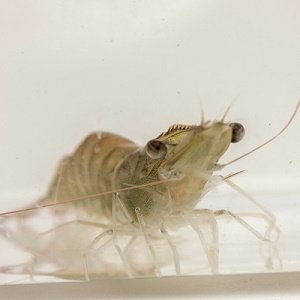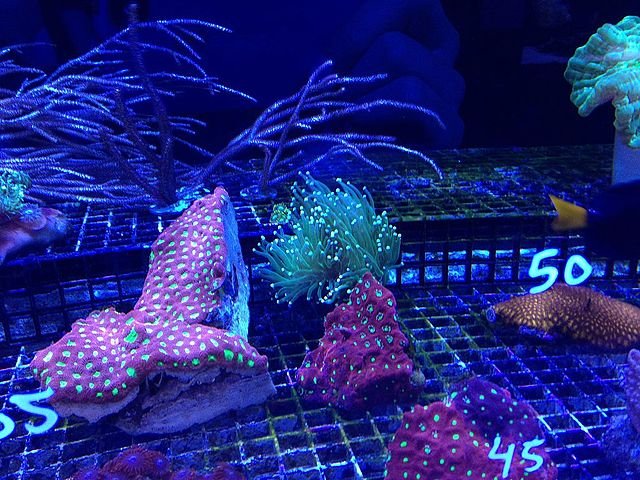
Climate change is wreaking havoc on ecosystems worldwide, and aquatic environments are no exception. The European sea bass, a commercially important fish species for European marine aquaculture, faces increasing threats due to extreme winter cold waves. But a new study offers hope to aquaculturists!
Researchers from the Leibniz Centre for Tropical Marine Research (ZMT) and Carl von Ossietzky University Oldenburg conducted a study shedding light on how dietary supplements affect the physiological responses of European sea bass (Dicentrarchus labrax) during extreme winter exposure.
The Challenge: Winter Woes for Sea Bass
European sea bass thrives in warm waters, with optimal growth occurring between 20 and 24°C. However, winter brings a drastic temperature drop, disrupting its physiology and causing issues such as:
- Reduced feeding and growth: When temperatures drop below 10°C, sea bass effectively stop feeding, hindering their growth.
- Ionic imbalances: Cold stress disrupts electrolyte balance and affects vital bodily functions.
- Impaired digestion: Cold temperatures weaken the digestive system, affecting nutrient absorption.
- Weakened immune system: Cold stress suppresses the immune system, making fish more susceptible to diseases.
These combined factors contribute to “winter diseases” and significant mortalities in sea bass farms.
The Experiment: Feeding Fish to Boost Resilience
The study divided European sea bass into different groups. Over 45 days, some fish received diets supplemented with:
- Vitamins C and E (diet-1)
- Propolis, is a natural resin produced by bees (diet-2). Propolis has been successfully tested to reduce cold stress in tilapia.
- Phycocyanin, a blue pigment found in algae (diet-3)
A control group received a standard diet. After this dietary period, all fish faced the real test: 20 days of simulated extreme winter cold (7°C).
Weight and Basic Health: Not Much Difference Initially
The good news? Before the cold wave, dietary supplements had no significant impact on fish weight, growth rate, or protein efficiency. Additionally, electrolyte levels (sodium and chloride) remained stable across all diets, both at normal and cold temperatures.
However, as the water cooled further, things got interesting. During cold exposure, some interesting physiological changes emerged:
- Fish Diet-3 (phycocyanin): Higher potassium levels and lower blood glucose levels compared to other groups.
- Fish Diet-1 (vitamins C and E): Reduced blood sugar but also significantly higher levels of an enzyme indicating potential liver stress.
- All diets: Increased blood triglycerides (fats), except for fish on diet-3 (phycocyanin).
- Fish Diet-3: Higher lactate content, potentially indicating increased muscle activity.
Stress Hormones and Gene Expression: A Hint of Greater Resilience
The study also analyzed stress hormones and gene expression, offering promising insights:
Stay Always Informed
Join our communities to instantly receive the most important news, reports, and analysis from the aquaculture industry.
- Diets 2 and 3 for fish: Significantly lower cortisol levels, indicating reduced stress during cold challenge.
- All diets: Positive regulation of genes involved in growth, metabolism, and immunity across all groups during cold exposure.
- Fish Diet-2 and 3: Compared to the control group, these fish showed negative regulation of genes potentially involved in fat storage and glucose absorption during cold exposure.
- Control diet: Before cold stress, these fish exhibited higher levels of a pro-inflammatory molecule in the spleen, suggesting a possible pre-existing inflammatory state.
Conclusion: Supplements Offer Assistance
While more research is needed, this study suggests that dietary supplements (particularly propolis, phycocyanin, and vitamins C and E) may offer benefits to European sea bass facing extreme winter cold. These supplements seem to help with:
- Reducing stress levels
- Better regulation of blood sugar and electrolytes
- Positive regulation of genes vital for growth, metabolism, and immunity
Overall, this research suggests that dietary adjustments could be a valuable tool in aquaculture to help European sea bass populations cope with the challenges of a changing climate.
Contact
Md Jakiul Islam
Leibniz Centre for Tropical Marine Research (ZMT), Fahrenheitstraße 6, 28359 Bremen, Germany
Email: md.jakiul.islam@uni-oldenburg.de
Reference (open access)
Islam, M. J., Puebla, O., & Kunzmann, A. (2024). Mitigation of extreme winter stress in European seabass, Dicentrarchus labrax through dietary supplementation. Aquaculture, 740814. https://doi.org/10.1016/j.aquaculture.2024.740814
Editor at the digital magazine AquaHoy. He holds a degree in Aquaculture Biology from the National University of Santa (UNS) and a Master’s degree in Science and Innovation Management from the Polytechnic University of Valencia, with postgraduate diplomas in Business Innovation and Innovation Management. He possesses extensive experience in the aquaculture and fisheries sector, having led the Fisheries Innovation Unit of the National Program for Innovation in Fisheries and Aquaculture (PNIPA). He has served as a senior consultant in technology watch, an innovation project formulator and advisor, and a lecturer at UNS. He is a member of the Peruvian College of Biologists and was recognized by the World Aquaculture Society (WAS) in 2016 for his contribution to aquaculture.







